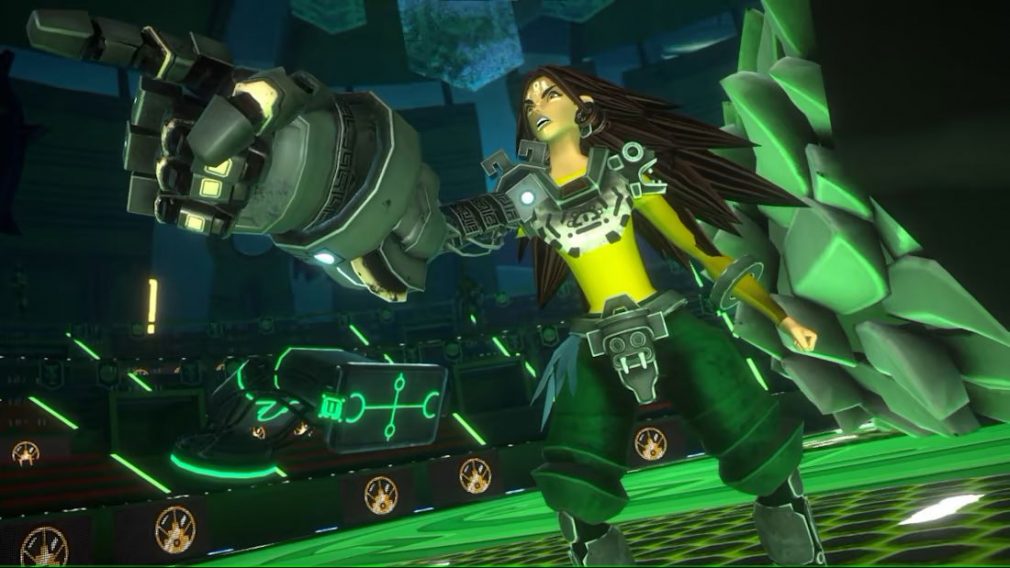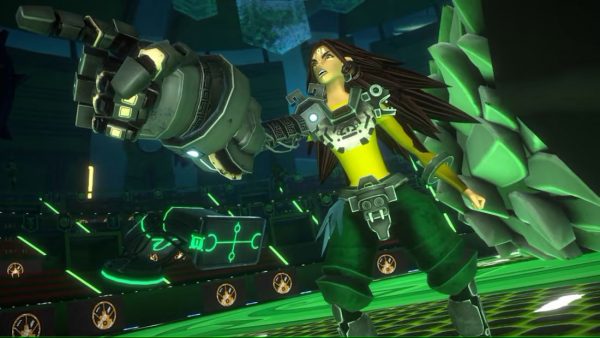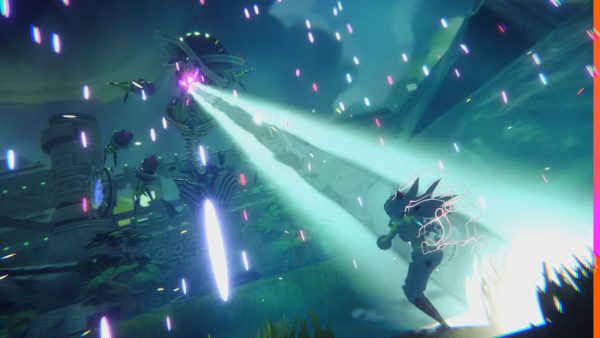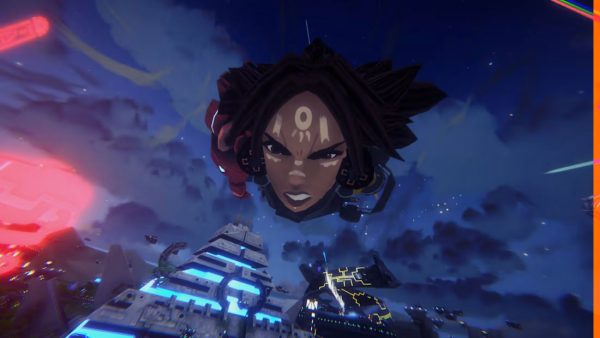Also on: PC, PS4, PS5, Xbox Series X, Xbox One
Publisher: Lienzo
Developer: Lienzo
Medium: Digital
Players: 1
Online: No
ESRB: T
A couple of years ago, I reviewed a game called Mulaka from Mexican developer Lienzo. It had some really interesting ideas and an undeniably unique setting, but in the end it was too much of a mess to make it worth your while. Now Lienzo are back with Aztech Forgotten Gods, and?it?s got some really interesting ideas. It?s got an undeniably unique setting. And it?s too much of a mess to be worth your while.
I?m noticing a trend.
This makes sense, since Aztech Forgotten Gods feels like a spiritual sequel to Mulaka. Both are clearly influenced by Mexican culture (which makes sense, since Lienzo is Mexican), but where Mulaka felt like it took place in some mythical forgotten past (think Breath of the Wild, but, you know, Indigenous Mexican), Aztech Forgotten Gods is set in a version of the future where Aztec culture thrived and got mixed with magic.
And, like Mulaka, Aztech Forgotten Gods nails that setting. From the clothing to the buildings that look like futuristic versions of Aztec pyramids, nothing else out there looks like this game. With so many games nowadays imagining the future will be the same brand of cyberpunk, imagining something so different is a breath of fresh air.
Unfortunately, once you dig in a little deeper than that, Aztech Forgotten Gods kind of falls apart (again, like Mulaka). Take something as basic as character movement, for example: it?s built around a really cool idea. You have an ?ancient artifact” that basically allows you to fly around the city, and you can launch yourself at any time with minimal cooldowns between flights. If you?re just going in a straight line, it works, and it feels amazing.
The thing is, as soon as you need to do anything other than fly in a straight line, the game can?t handle it. The camera will pan around wildly, trying to find you a good angle. You?ll ricochet off buildings and other obstacles ? in theory those give you boosts to extend your flight, but in reality they just make you harder to control.
On top of that, the game has bossfights that sound great on paper but are let down by the execution. You?re supposed to be able to soar around these giant monsters, ping-ponging from weak spot to weak spot and pummeling them as metal blasts in the background. Instead, you can never be quite sure where you are in relation to the monsters, and it?s not uncommon to take an angle the wrong way and find yourself soaring away from the monsters without even laying a finger on them.
Even the character interactions become grating really quickly. It?s neat to see how the characters look and what they have to say ? but your patience will wear thin with the brief noises that pass for dialogue. I tried my hardest to stick with them, since I wanted to be able to follow the plot, but after a short while I was skipping them just to get away from the grating sounds.
It?s unfortunate because, again, Aztech Forgotten Gods has such an interesting idea at its core. It could have been a great game that really stood out from the crowd, but instead, it?s one that?s not nearly as good as it could have been.
Lienzo provided us with an Aztech Forgotten Gods Switch code for review purposes.




